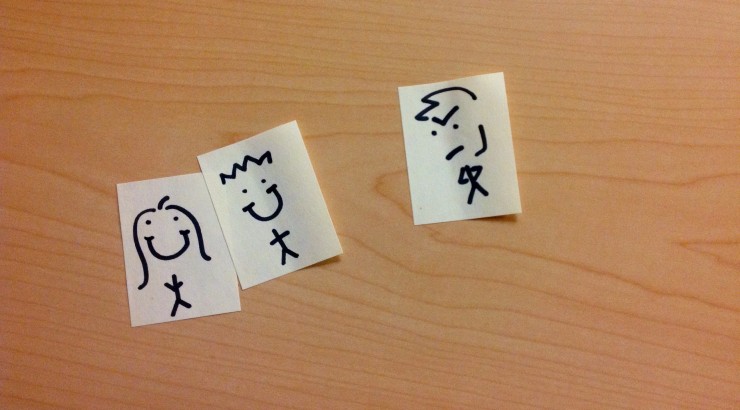Chapman Faculty Researches Sexual VS. Emotional Infidelity
January 12, 2015

Ever wonder what makes your significant other jealous? Are you the one who gets jealous, but don’t know why certain situations make you more envious than others? Learning to trust more or gaining the trust of others might be on your ‘New Years Resolutions’ list. It may be helpful to start the new year understanding feelings from the beginning. According to a study done by
Chapman University’s
assistant professor,
David Federick,
Ph.D of
Crean College
, your biology and gender may have something to do with it.
Professor Frederick’s
study
incorporated a poll surveying about 64,000 Americans, ages 18-65 with most averaging in their late 30s. They were asked questions about sexual vs. emotional infidelity.
Which upset them more and why?
Sexual infidelity is defined as having sex outside of the relationship
without
emotional attachments. Emotional infidelity means ‘falling in love’ with someone outside the relationship
without
having sex. Gender differences and sexual orientation were taken into consideration.
Interesting research from the study found that 54% of heterosexual men and 35% of hetersexual women were more upset at sexual infidelity than emotional infidelity. They also found that 65% of Heterosexual women and 46% of heterosexual men were more likely to be upset with emotional infidelity. The results did not differ too greatly when surveying bisexual men and women as well as gay men and lesbian women in the study.
“Heterosexual men really stand out from all other groups: they were the only ones who were much more likely to be most upset by sexual infidelity rather than emotional infidelity,” said David Frederick, Ph.D. He further states that “The attitudes of gay, lesbian, and bisexual men and women have been historically understudied and under theorized in psychology, particularly in regards to tests of evolutionary perspectives.”
But why are there different types of jealousy? What is ‘cheating?’ The biological make up of men and women differ in great ways. Although each person is unique, there are collective make-ups specific to gender that cause men and women to generally react in different ways.

A man for example, experiences different levels of jealousy because of the underlying factors it brings out in his biology. Dating back to an evolutionary make up, men battle with an issue women do not: Paternal Uncertainty. A woman is certain the child is hers because she gives birth to the child. A man’s mind cannot biologically agree 100% that the child is also indeed his. In an attempt to evolutionary assure his genes are passed on, a man then values the fidelity of his partner physically. From a socialized perspective, a man seeks to be perceived as masculine by his peers. Social pressures indicate that when his partner is unfaithful physically, a man is less masculine. Being perceived as less masculine endangers is place in society, and thus he gets more frustrated when his mate is physically unfaithful to him.
Women on the other hand also experience jealousy, but in a different way. Biologically, a woman is concerned with her investment in resources. Socially accepted as the partner who is the ’emotional nurturer,’ her place is threatened when her partner receives the emotional nurturing from someone else. Without his emotional commitment, she fears he will leave her as his needs are being met elsewhere. Being replaced also means the possibility of loosing what they have created collectively, and thus emotional infidelity causes unrest within her.
“The responses of men and women to the threat of infidelity range from intense pangs of jealousy to elaborate displays of attention to woo their partner back. Jealousy can also trigger harmful and violent behavior, so it is important to understand what are the most potent triggers of jealousy,” said Dr. Frederick.
In addition to the evolutionary and biological reasons for jealousy, the study did incorporate other possible variables. Characteristics such as age, income level, history of infidelity, relationship type and length of commitment are a few issues that may impact a person’s level of jealousy, but studies proved them to be minimal.
However this information presents itself to you, it might help improve your relationships in 2015. Taking a deep breathe and thinking twice before making conclusions may help keep jealousy and biology from winning the war. With many goals in the process of being met (or unmet) on everyone’s list, starting off with knowledge can be a good beginning for you, your significant other and the new year.


